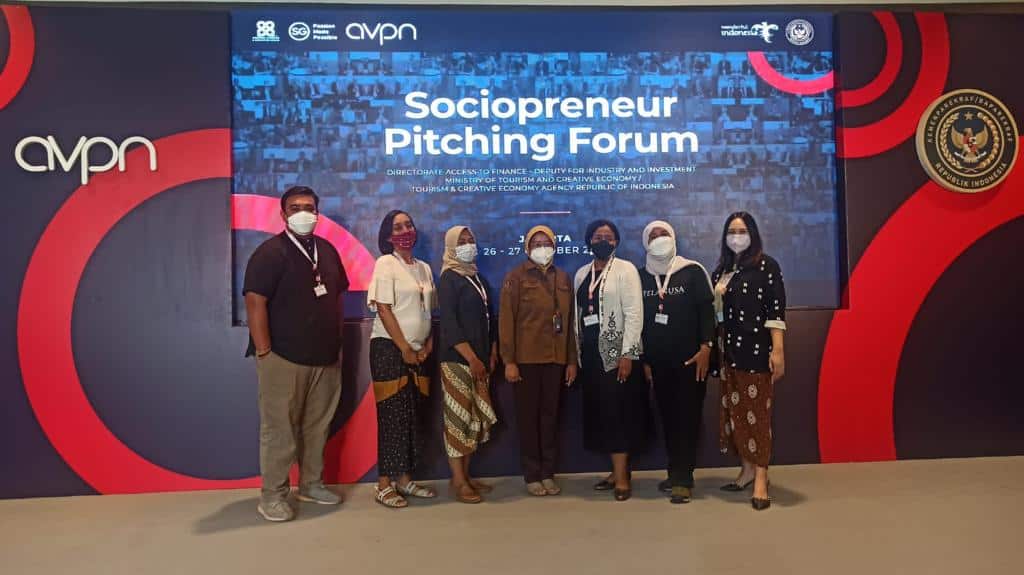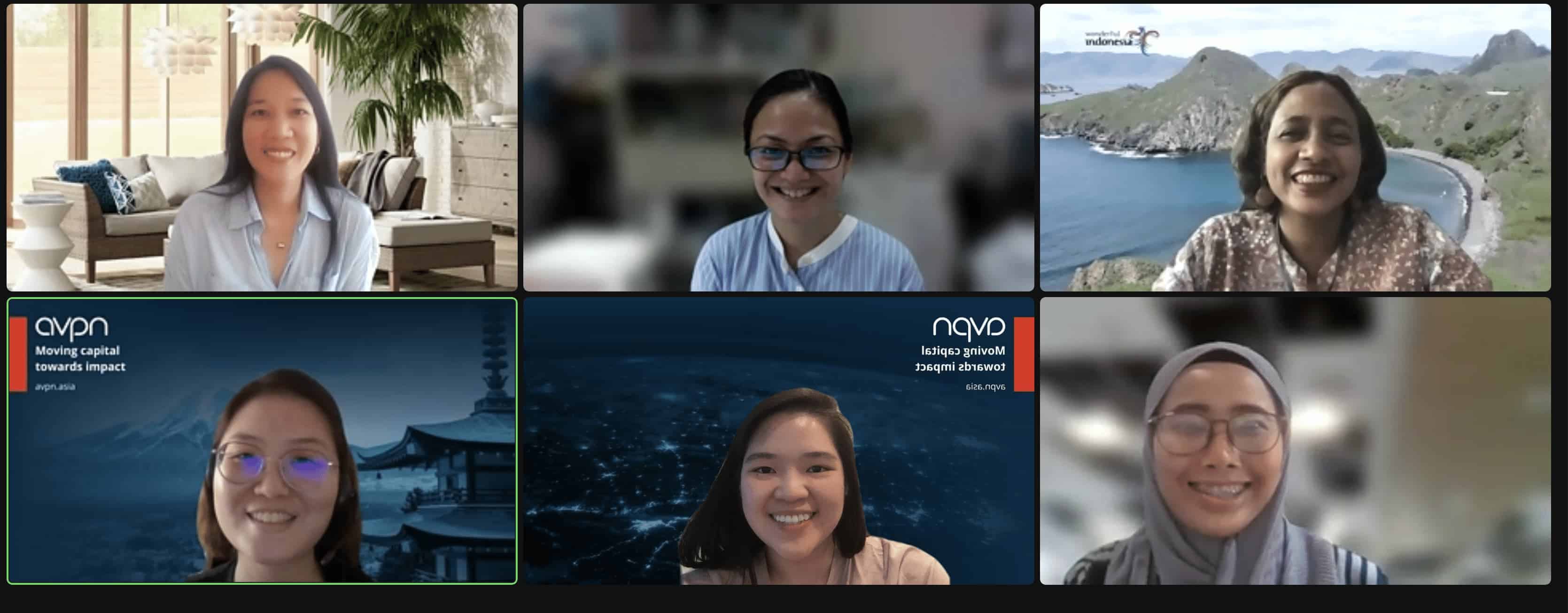4 min read
Public-private partnerships can accomplish what neither side can do alone. They can allow for more efficient, effective projects, innovation, and capacity building. However, they can also involve many pitfalls. In order to avoid these, it is imperative that both sides of the collaboration exhibit trust and transparency in order to build strong relationships and capitalize on each others’ strengths.
To better harness the power of networks and improve efficient resource allocation, AVPN recently concluded its third run of the Regional Policy Leadership Lab, a year long project made possible through the generous support of The Toyota Foundation. The Lab’s 2021/22 Cohort included eight Policy Fellows from Indonesia, Thailand, and the Philippines, holding diverse portfolios in various government ministries such as the Thailand Securities and Exchange Commission, Indonesia’s Ministry of Tourism & Creative Economy and Ministry of Villages, and the Provincial Government of Leyte, Philippines. The proactivity and enthusiasm of policymakers and social investors demonstrated at the Policy Leadership Lab bodes well for the future and highlights the importance of building public-private partnerships.
As AVPN worked with the Fellows to overcome the challenges they faced in engaging social investment resources to further their policy initiatives, we learnt creativity, proactivity, and open-mindedness are key. Below are ways we took to facilitate and cultivate meaningful conversations and relationships.
Finding creative approaches to stay connected during the pandemic
In the time of the pandemic, it was difficult to connect in-person. Therefore, creative solutions had to be found in order to continue to convene. The Leadership Lad responded to this challenge by curating multiple personalised consultations, online focus group discussions, web-based panels and impact showcases to connect Fellows and stakeholders working on common topics who would not have otherwise had the opportunity to connect. AVPN also curated safe in-person spaces in order for like-minded practitioners to share experiences, challenges and best practices.
For instance, Ms. Hanifah Makarim, an Indonesian policymaker in the Ministry of Tourism, joined the AVPN Policy Leadership Lab to find international partners to contribute to and support Indonesia’s creative economy enterprise in order to increase their access to capital. Instead of a closed-door consultation with private investors. AVPN decided to leverage the regional Southeast Asia Summit to bring together 5 high-impact social enterprises under the Ministry’s portfolio to present their work, and gain feedback from funders and resource providers. This provided Ms. Hanifah a glimpse of what capital providers are looking for in their portfolios. Private investors and intermediaries were also able to identify where the technical gaps are in the social entrepreneurship ecosystem, allowing both sectors to identify opportunities to plug key gaps. The success of this engagement prompted another Showcase at the AVPN Global Conference in Bali, Indonesia, the following year, which brought together another set of social investors who provided advisory support to small and medium impact enterprises in the fashion industry.

Proactiveness
The most success was seen by Fellows who made proactive efforts to initiate and maintain connections. For instance, Ms Anna Veloso, Ms Lesley Cordero, and Ms Hanifah Makarim, our Policy Fellows from the Philippines and Indonesia respectively had overlapping interests in the tourism industry. While they had different expertise, ranging from disaster resilience to market development for the creative economy, they were keen to hear more about each others’ perspectives and exchange best practices. As a result, they convened virtually and were able to learn from each others’ strategies and past experiences and benefit from each others’ connections.

Learning from setbacks
There were numerous challenges associated with attempting to build connections through screens. It is harder to create a safe environment for stakeholders to create strong synergies, share and connect in online spaces. This combined with the political instability of the pandemic meant certain fellows were unable to attend all engagement events.
In order to benefit, all parties need to be proactive and intentional about conversations they have and follow up after the event to continue to deepen new relationships. This was seen in the case of Fellow Lesley Cordero, Senior Disaster Risk Management Specialist at the World Bank in the Philippines. After engaging with Prudence Foundation in a consultation session, she was then invited to speak at the World Economic Forum, Sustainable Development Impact Summit on improving community resilience in climate disasters. In this way, both sides were able to tap on each other’s strengths and learn.
Being open-minded and willing to consider new perspectives or changes in direction is a key part of the collaboration process. Through the Lab, Fellows found that the social investment journey may involve changing priorities or goals as the Fellows and other stakeholders both learned from each other. Acknowledging constructive feedback and accepting that even those at a senior stage in their career have more to learn allowed them to grow and take the best possible route forward.
Overall, this Lab helped empower all stakeholders to better navigate rigid engagement parameters and leverage areas of synergy within and outside the Fellowship.

















